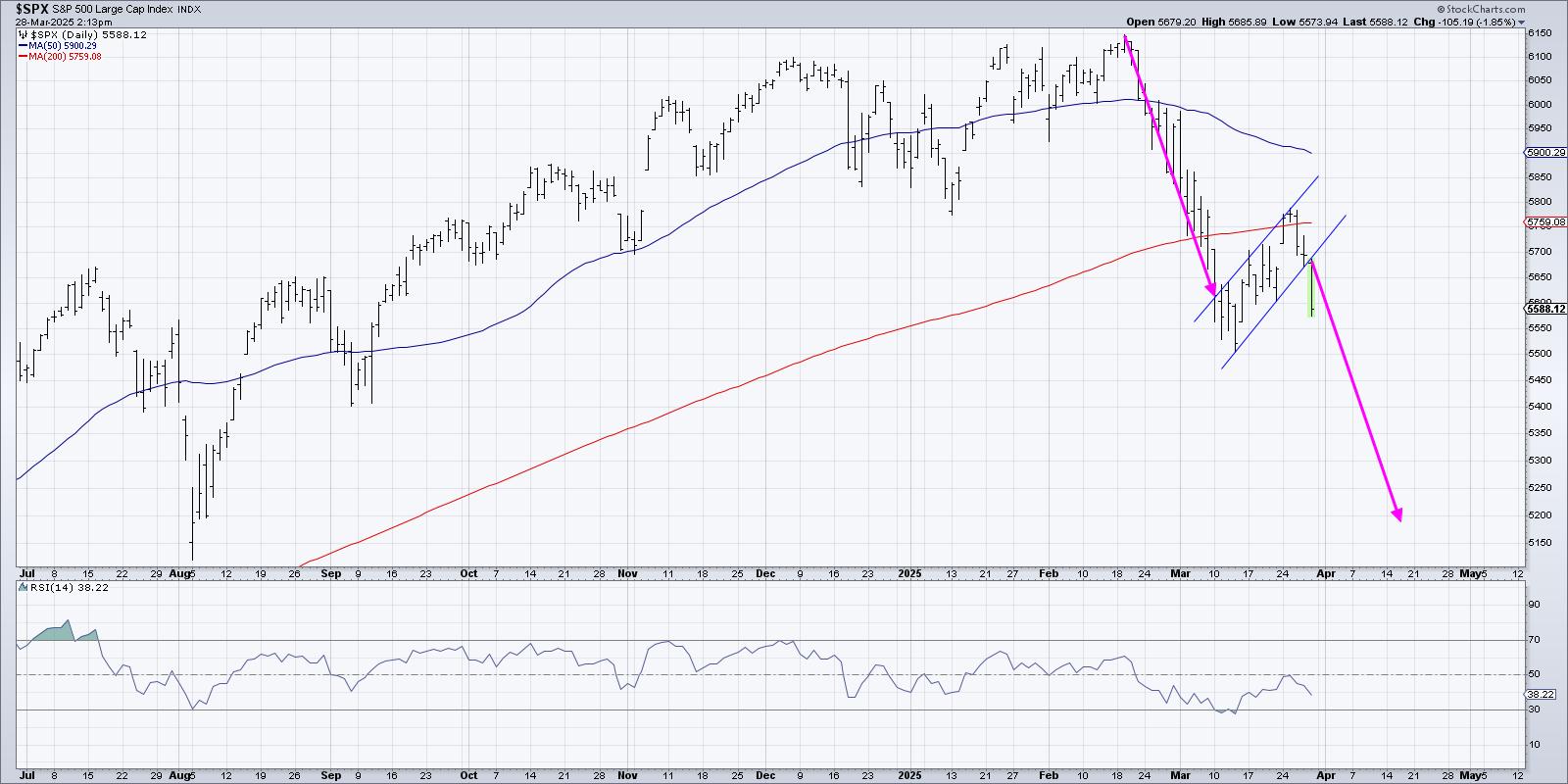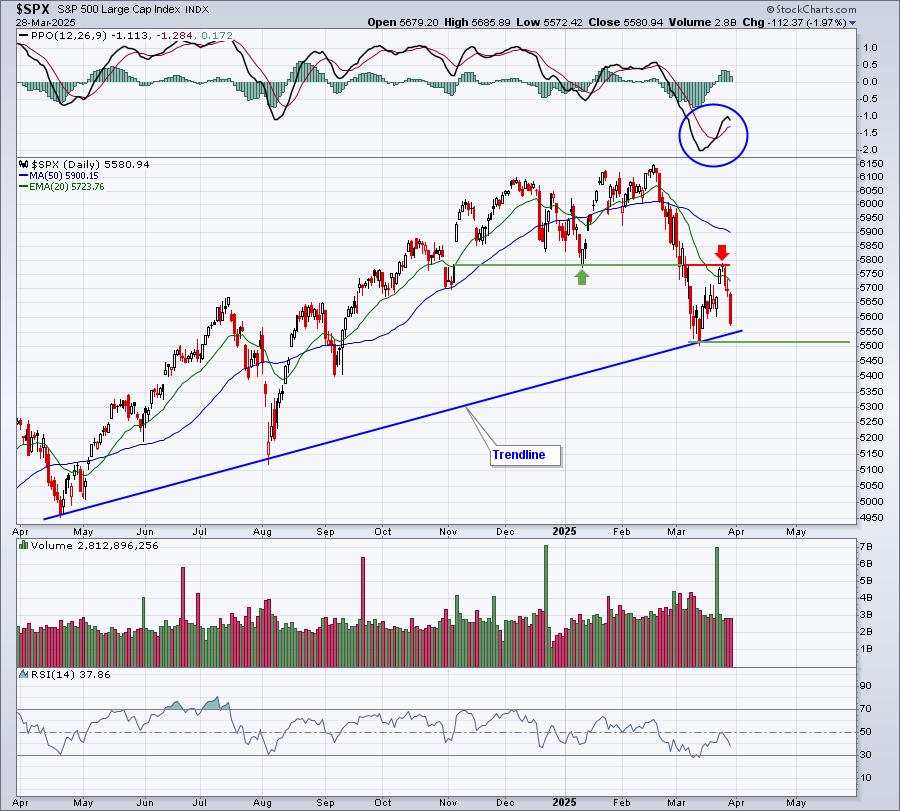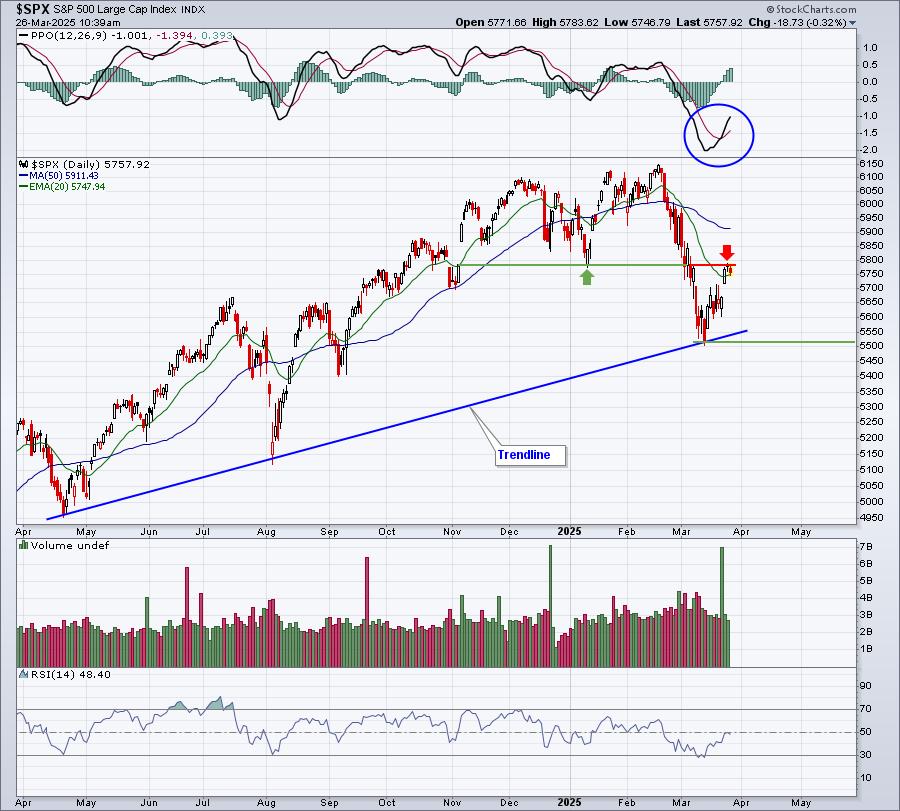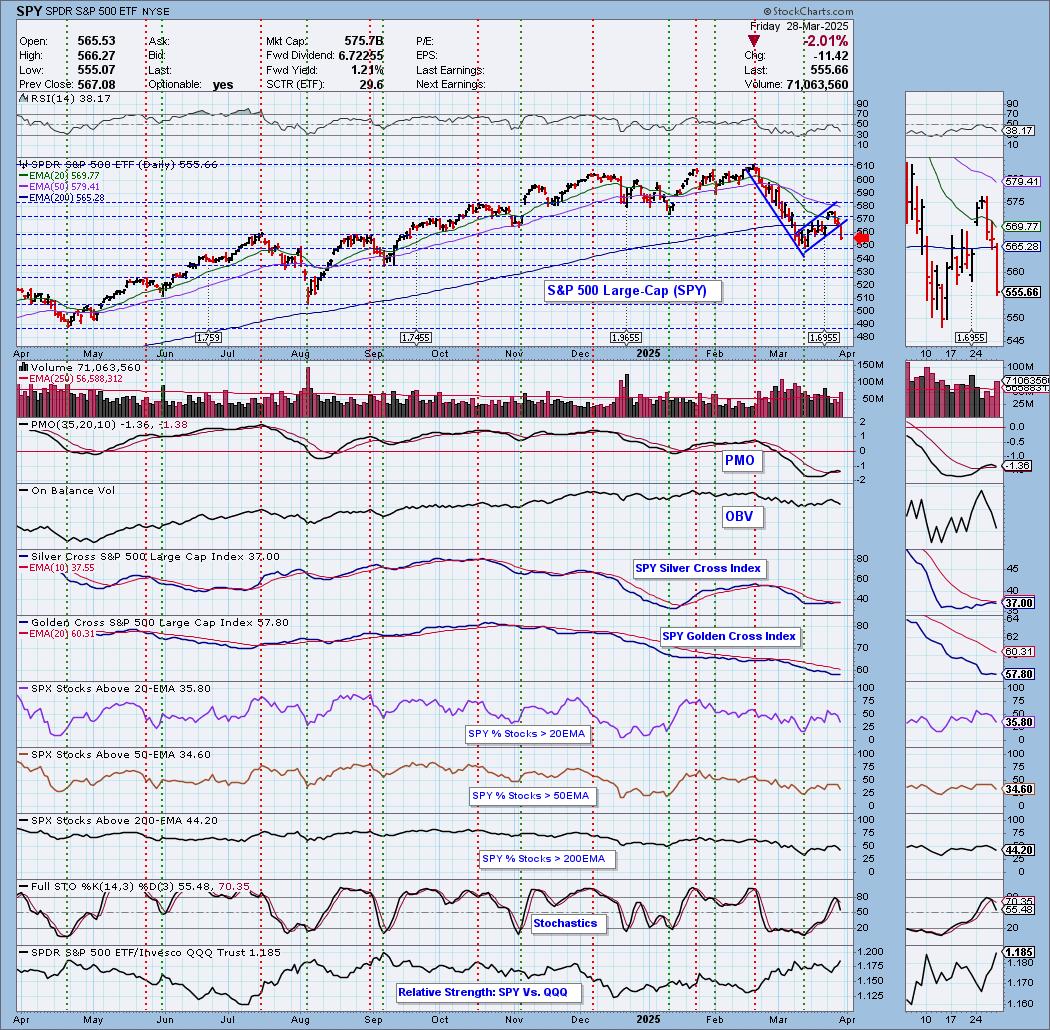Several recent surveys have shown that women tend to avoid investing in the stock market. That may be changing as women start realizing the importance of financial wellness. In honor of Women's History Month and International Women's Day, StockCharts is running a series of articles highlighting women traders who have had to overcome barriers to achieve their financial goals.
In this episode, we speak with Carley Garner, a futures and options market strategist, and broker with DeCarley Trading. Carley believes the most valuable commodity is education. She has authored several books focusing on trading commodities, forex, and commodity options. But what were the biggest challenges Carley faced to get to where she is now? Let's hear what she has to say.

Carley, what drew you to the financial markets?
I've been interested in money from day one, but it wasn't until deep into my college career that I discovered a passion for markets. In the late 1990s, I witnessed an aunt and uncle take a humble savings account and bring it to a balance of tens of millions of dollars. I also saw them transition from a modest lifestyle to one of luxury—lavish trips to Las Vegas, a home featured in magazines, and furniture bought from NBA players.
At the time, I was too naïve to realize how unlikely that outcome was, nor how ill-advised their investment approach was to achieve it (their portfolio consisted of three stocks). Yet, it piqued my interest.
Although my relative's story of rags to riches eventually became one of riches to rags, I'm grateful for the incentive to get involved in the financial industry and the second-hand lessons I learned.
Who would you say influenced you the most in amplifying your interest?
While my relative's experience drew me to pursue a degree, and later a career in finance, it was the excitement of commodities that got me hooked. By excitement, I mean both euphoria and misery; that's what the commodity business is all about. It's not for the faint of heart. In fact, it isn't for most people.
I entered the business without any knowledge or experience and was lucky enough to work in an office with veteran commodity brokers. It was there I learned the good, the bad, and the ugly of commodity brokerages. I learned what should be done for long-term success in the brokerage industry, and what shouldn't be done. Both lessons were equally valuable.
What do you like most about the markets?
The market can be anything its participants want them to be. Those looking for long-term investment opportunities with high probabilities of slow-churning results can behave accordingly, and those looking to turn big risks into potentially big returns can find that too. What they don't teach us in finance class is that the relationship between risk and reward is not linear. There's a point on the curve where more risk equates to a near-guaranteed loss instead of higher profit potential. When talking about futures and options on futures, which are highly speculative, most market participants lose money. That's a tough pill to swallow. I work hard to provide high-quality market analysis and sage advice to our brokerage clients to try to defy the odds, but humans tend to react emotionally to markets, and that's where most go wrong.
In short, knowing that a poor month or year in business or my portfolio won't threaten my way of life has significantly reduced the stress that comes with business and market ebbs and flows.
What do you like least about it?
What I dislike most about the financial markets is that most people who venture into commodities lose money. Commodity futures are leveraged, which means those trading aggressively can make or lose an abnormal sum of money in a small amount of time. It's like speculating on speed. Sadly, many either don't understand leverage or underestimate it, and it gets the best of them.
I lose a lot of sleep at night thinking of ways to help educate the public on how the futures markets can be used to hedge their price risk in business, their portfolios, or speculate in a responsible manner. There's a need for futures markets in society, but there are also unintended consequences (unsuspecting speculators getting in over their heads).
A recent study by Fidelity found that even though women invest less than men, on average, they outperformed their male counterparts by 0.4%. There may be many reasons women make better investors than men. What, in your view, are the main reasons women are reluctant to invest in the markets?
Market participation, even on the most conservative scale, involves some risk. In large, women are more risk-averse; thus, they're likely reluctant to take the plunge. Also, while societal norms are changing and constantly evolving, some households still operate on a model in which men are primarily in charge of finances (or at least that's my perception; don't cancel me for that observation).
You're in the commodities arena. I would imagine the gender gap is even wider. What are some challenges you faced being a woman in the commodity trading space?
It has been my experience that women are far less interested in participating in commodities than men. I believe this is because of the perception that commodity trading is riskier than trading in other markets.
I would argue that trading, instead of long-term investing, is highly speculative and similarly risky regardless of the asset. If the goal is to take short-term positions with the goal of beating the market, there's no easy money. The leverage built into commodity futures contracts adds a layer of risk that cannot be argued. Although market participants can eliminate leverage by overfunding their account, most either choose not to or don't understand leverage enough to know that it can be a solution to taming the hyper-charged profits and losses.
On the other hand, from a commodity industry professional perspective, I've found that although there aren't many women attempting to navigate careers in the space, it has been a pleasant and rewarding experience. Despite the widespread belief that the commodity brokerage industry is a bit of a "boys club," my experience has been the opposite. In a broader scope, the financial sector, not just commodities, I've benefited from the generosity of a long list of people, both male and female, who have given me life-changing opportunities out of kindness and respect and I'm grateful for all of them.

This is in line with what other women have said. What are some ways women can overcome their aversion to investing?
In my experience, the stress of market participation was greatly reduced by taking ground-zero steps toward financial security. More specifically, living a debt-free lifestyle relieves an unfathomable amount of pressure to produce at work and in investment accounts. In short, knowing that a poor month or year in business or my portfolio won't threaten my way of life has significantly reduced the stress that comes with business and market ebbs and flows.
Paying off debt is the same as earning the interest rate being charged without accepting risk. Thus, I believe debt elimination to be the best form of "investing." Then, when a person is financially secure enough to invest in financial markets, asset declines aren't burdens; they are opportunities. Further, financial security encourages a longer-term approach to investing in traditional assets and commodities. Ultimately, financial markets are designed to go up over time (earnings, inflation, cash flows), and commodities are structured to trade sideways, but neither are prone to perpetually discounted prices. Time and patience, which comes with financial security, can right many wrongs in market participation.
Thus, my advice is to live beneath your means, diligently pay off debts consistently, and strive to make large purchases in cash; then, after all of these things are accomplished, accepting market risk will be a much more comfortable endeavor. Ultimately, the key to financial market success is longevity and consistency. In my opinion, those two things can only be achieved by those who can sleep peacefully at night. If market risk exposure is causing a person anxiety, the likelihood of making expensive errors increases substantially. Those prone to panicked liquidation at awful prices are better off not being invested anyway; a few poor split-second decisions can cause irreparable damage.
What opportunities are you seeing in today's markets?
We've experienced three years of excessive volatility and seemingly consecutive black swan events, but I believe that was an exception, not the norm. I expect markets to normalize in the coming years. That will mean less volatility and risk but lower returns for those markets that move positively. Instead of 10% to 20% in equities, we could see something closer to 5% in positive years. Part of this can be attributed to fixed-income instruments directly competing with equities. Investors will have to decide whether the risk of equities is worth it when they can get a similar return for a far less risky venture.
In commodities, the rip-roaring rallies are likely behind us. Commodities, unlike stocks, don't go up over time; instead, they generally trade sideways, with bull markets being faster and more volatile than bear markets but bear markets being far more common. As of early March of 2023, speculators in the futures markets were holding near-record net short positions in the E-mini S&P 500 and Treasury futures. Usually, when everyone on the boat is leaning in the same direction, things start to tip the other way. While 2022 saw the traditional 60/40 portfolio get pulverized, I think we could be entering an environment in 2023 in which such an allocation could outperform. In other words, both stocks and bonds could move up together as we recover from the chaos that ensued from March 2020 through much of 2022.

DAILY CHART OF MARCH 2023 E-MINI S&P 500 FUTURES. Click on chart for live version. Chart source: StockCharts.com. For illustrative purposes only.
Thank you so much for sharing your thoughts, Carley. Wishing you continued success.

Disclaimer: This blog is for educational purposes only and should not be construed as financial advice. The ideas and strategies should never be used without first assessing your own personal and financial situation, or without consulting a financial professional.






